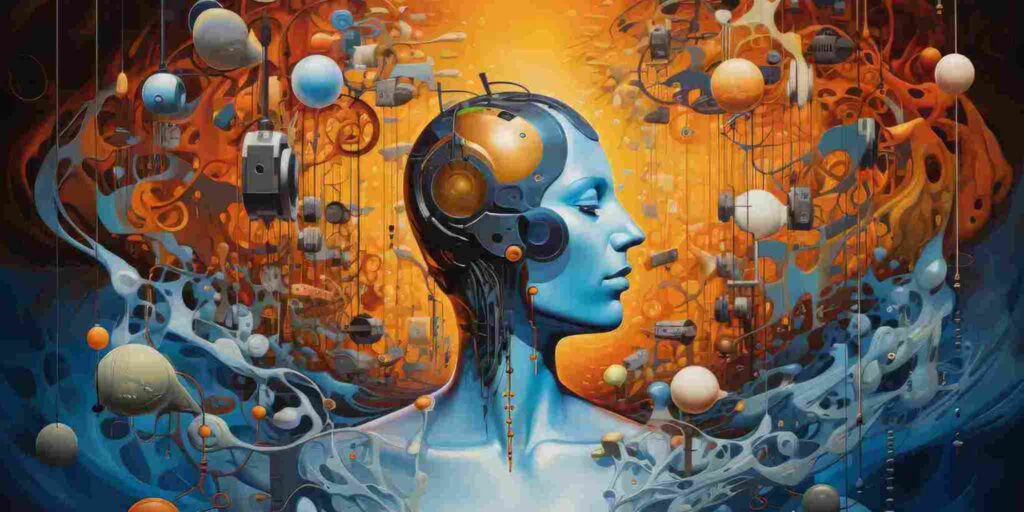
Generative AI is a concept that has emerged in several fields in recent years, as it has to do with education as well. With the advancement of AI, virtual tutors, and teaching assistants are becoming the new norms in learning that supplement student and teacher preferences and needs.
With the help of the generated model, it is possible to outline the main trend in the development of generative AI, in particular its application to education.
Education is another major area where AI development has emerged and can make content and answer queries on the spot. Advancements in the technology of AI in the past have led to the implementation of the technology to add value to the classes being offered. In the current society, there is a growing employment of Synthetic Intelligence for the expansion of certain courses in learning institutions.
Key Features of AI-Powered Virtual Tutors and Teaching Assistants
- AI-powered virtual tutors and teaching assistants come equipped with several key features that enhance the learning experience:
- Personalized Learning Experiences: Personalized teaching and students’ assistance according to their characteristics and preferences.
- Real-Time Feedback and Support: Query answering the student’s questions and help with the coursework in the course of the learning process.
- Data-Driven Insights: Using data analysis to present valuable information to instructors based on students’ performance information.
- Accessibility and Inclusivity: Features like talking, and adding captions to videos or translations help to reduce learning disparities among students, making education more accessible and inclusive.
Advantages of AI-Based Virtual Tutors and Teaching Assistants
The integration of AI virtual tutors and teaching assistants offers numerous benefits:
- Automation of Administrative Tasks: Teaching activities such as grading, attendance, and schedules can be handled by AI; hence, educators’ time can be dedicated to teaching.
- Enhanced Engagement: The knowledge developed by using interactive AI assistants helps the students to remain motivated as the answers are provided instantly.
- Language Support: AI is capable of translating educational content as well as providing a means for communication in different languages due to the multicultural nature of students.
- Scalability and Flexibility: AI solutions can be implemented at a large scale, addressing a given number of students, as well as implemented in different learning environments.
Use Cases and Applications
There are various use cases and applications in AI-powered virtual tutors and teaching assistants. Let’s explore them:
- Higher Education: AI development Solutions have also found their way into university learning through tutoring systems to facilitate student’s needs. For instance, students who have difficulties in grasping concepts such as mathematics and computer science are some of the beneficiaries of AI tutors since the former can explain to the learner in detail how the concept arrived at. These systems can also generate patient evaluation data that can be used to determine where the students may require more attention and assistance.
- K-12 Education: Across the primary and secondary institutions, AI aides are participating in executing learning activities and handling students. Through AI, the program can track the student’s progress, recommend the learning activities as well as give feedback thus keeping the students on alert and active.
- Vocational Training: AI is also used in vocational training programs in order to offer students specialized assistance in skill development. There is also the advantage of the virtual assistants being able to provide the users with practice exercises, model real-life situations, and give performance feedback to the learners as they integrate the skills that they are learning.
- Online Learning Platforms: Currently, MOOCs are also adopting AI tutors to increase the efficiency of the learning process. These AI tools can generate responses to the students’ questions, direct the students to related information, and suggest subsequent actions depending on the student’s performance and interests.
- Special Education: AI virtual assistants are rather useful in special education because the application can be adapted to meet a kid who has one or another kind of disability. For instance, AI can provide text-to-speech services, translate content into braille, and modify classes for every learner.
- Corporate Training: AI has been applied in many areas of business and one of them is in enhancing professional training and development. AI virtual assistants can design unique training sessions for participants, monitor the progress of employees, and suggest potentially useful materials and training sessions depending on the participant’s goals and results.
Challenges and Considerations
Despite the benefits, there are challenges associated with the use of AI in education:
- Ethical Considerations: The protection of data and ethical issues regarding the utilization of AI be solved.
- Bias and Fairness: Reducing bias in student treatment by AI algorithms to enhance the fairness of all students.
- Technological Challenges: Challenges associated with the structure of the communities and providing consistent opportunities to use the tools of artificial intelligence.
Future Prospects and Developments
AI in education is hence promising now and will continue to improve with the constantly evolving technology. Latest developments like the use of adaptive learning and content created through the use of Artificial Intelligence are expected to revolutionize the educational process. Continuing research is focused on the modern problems and opportunities that can allow AI in learning.
Being a Chatbot Development Company, Biz4Group can help in providing chatbot solutions to your business, enhance the user experience, and provide 24/7 support to the customers.
Conclusion
Intelligent Virtual Tutors and Teaching Assistants are among the most promising tools that can revolutionize the process of education by offering individualized synchronous assistance and eliminating paperwork. On the one hand, some constraints need to be resolved, on the other hand, the advantages are tremendous.
The call for collective responsibility of both educators and policymakers is crucial in the future of the application and use of technology, especially incorporating of AI in the continuing improvement of efficiency and contact in learning facilities.
